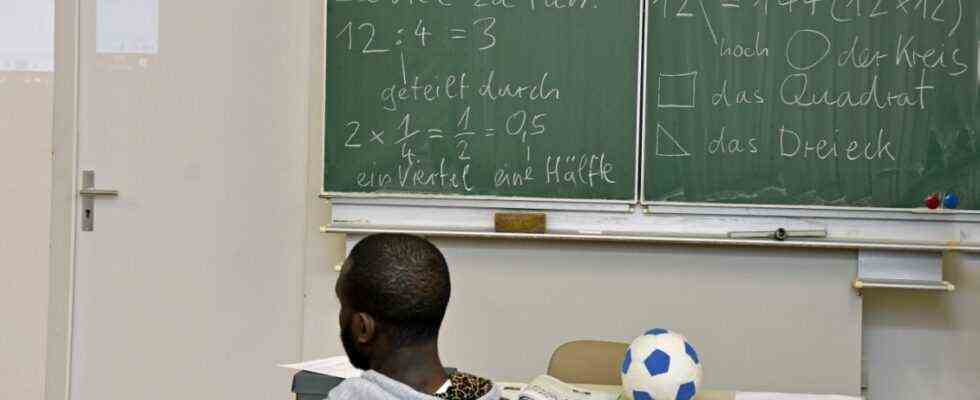Around 600 refugees are currently living in the anchor center on the former Fürstenfeldbruck air base, two thirds of them come from Afghanistan and Yemen. But there is a lack of interpreters, criticize both the Bavarian Refugee Council and the Brucker Caritas. Katharina Grote from the Bavarian Refugee Council complains that people have to go to Ingolstadt to go to the authorities as a “bloom of bureaucraticism”. If the accommodation fills up again, it is “not optimal”, especially in times of Corona, says Willi Dräxler (BBV), the integration officer of the Bruck city council.
In the week before last alone, 36 new people came to the branch. Currently, 215 refugees from Afghanistan and 211 from Yemen are housed in the facility. There are 20 people from Iraq, nine from Turkey, but only two people from Nigeria, who until recently made up the largest contingent. Most of them were “assigned to follow-up accommodation,” says the spokesman for the government of Upper Bavaria.
According to the government, there are no so-called local staff among the Afghan refugees who have worked for Western troops or institutions. Such persons are entitled to a residence permit and are housed in so-called transitional dormitories in Munich. The Brucker CSU had campaigned for the city to provide an apartment for local staff, but this has not yet happened.
Those refugees who have entered from Greece have major problems, reported Dräxler. There they would have no chance to make a living and because of the austerity dictates of the EU they would not receive any social benefits. They are not recognized as asylum seekers because they come from a safe third country, and some were stuck in “hopeless procedures”.
Many are traumatized by war and flight. Some have suffered torture and sexual abuse. Some have experienced the catastrophic conditions and the fire in the Moria camp on Lesbos, the illegal pushbacks at the EU border in Croatia and Poland or spent months in the cold in the woods, report Caritas employees. Some were evacuated from the airport in Kabul and survived the bombings. Almost all of them have relatives who were threatened, abused or killed by the Taliban and received bad news almost every day from people they had to leave behind, says Marion Henne, the Caritas team leader. Families were separated: a woman with two children was allowed to leave Greece, the man with two other children is still stuck there, reports Henne. Many children would have “functioned” during the escape, now the trauma is noticeable in nightmares, through hair loss or behavioral problems.
Like the Refugee Council, she criticized the lack of interpreters for Darsi and Farsi, the languages of the Afghans. The expense allowance for a cultural interpreter, a migrant with good knowledge of German, who comes once a week would be paid through a church fund. The language barrier is also a problem in medical treatment, in recognizing the need for protection or in assessing the mental state, says Grote. “Talking about trauma with your hands and feet is impossible,” says Dieter Pimiskern, who until recently headed Caritas’ Asylum and Migration Department.
The government spokesman said that interpreters are regularly requested when communication in English is insufficient or important matters need to be clarified. In addition, the accommodation staff would support all residents in communicating, usually in English. Grote reports that refugees sometimes interpret among themselves, which is problematic because it is a personal matter.
Grote criticizes the fact that refugees have to drive to the Central Immigration Office in Ingolstadt as “administrative nonsense”. The government justifies this with “increasing utilization of the office in Munich”. In order to ensure “efficient case processing”, responsibility has been transferred to Ingolstadt, even if this is “unfortunately” associated with longer travel and travel times for the residents of Bruck.
Due to the pandemic, the options in the accommodation are limited. The sports rooms are closed, German courses by volunteers do not take place apart from a few hours, reports Andrea Gummert, coordinator of volunteers at Caritas. The voluntary helpers are still active in the clothes closet and when distributing toys. Because the authorities are closed due to the corona, many refugees come to the counseling service with letters in German. “We take over the work of the offices,” says Gummert. Some of them therefore stand in the queue in front of the advice center for two and a half hours, sometimes in flip-flops or barefoot. The only bright spot is that asylum seekers are currently “recognized relatively quickly”, which is why fluctuation is high.

